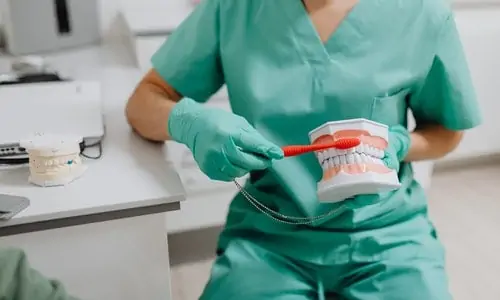We’ve all seen the commercials boasting that an electric toothbrush can do wonders for your oral health — from cleaning your teeth more thoroughly to whitening them. But are these claims true? Is an electric toothbrush really better than a regular manual one? Or is it just overhyped marketing? In this article, we’ll take a look at what your dentist in Tuscaloosa has to say about the differences between these two kinds of toothbrushes and whether an electric toothbrush really is the better option.
A Look at The Research
When it comes to the research behind electric toothbrushes and manual toothbrushes, there is some debate as to which is better. According to the American Dental Association (ADA), both types of toothbrushes are effective at removing plaque and bacteria and the technique used to brush is more important than the tool. However, a study in the Journal of the American Dental Association stated that over 81% of participants had improved their oral health after using an electric toothbrush. So, what’s the truth? Your dentist in Tuscaloosa believes that it’s based on individual preferences and needs.
Who Should Choose An Electric Toothbrush?
Manual toothbrushes have been tried, tested, and withstood the test of time. However, some people can find them difficult to use properly. Ideally, patients should brush each section of their mouth (called quadrants) for about 30 seconds, holding the brush at a 45-degree angle, and making sure to clean the top, front, and back of each area. If someone has difficulty reaching all the way to their back molars or holding on to a toothbrush, they can benefit from an electric toothbrush. Some people who can find an electric toothbrush easier to use include:
- Those with arthritis
- Children
- People who have braces
Take 2-Minutes
Your dentist in Tuscaloosa recommends brushing your teeth for two minutes every time you brush. This can seem like a long time, especially if you’re ready for bed or are running late for work, causing people to rush through the routine. Most electric toothbrushes solve this problem by offering a timer. Some of the most popular electric toothbrush models time 30-second increments and notify you when it’s time to move to a new area of the mouth. Brushing for the full 2 minutes is one of the best ways to make sure you’re getting a thorough clean.
When it comes to selecting your new toothbrush, which should be done every 3-4 months, take some time to weigh your options and determine which type of toothbrush may be right for you. We always recommend talking with your dentist or dental hygienist about the tools you use to care for your smile. They can have some great insight and advice based on your individual dental health and needs.


